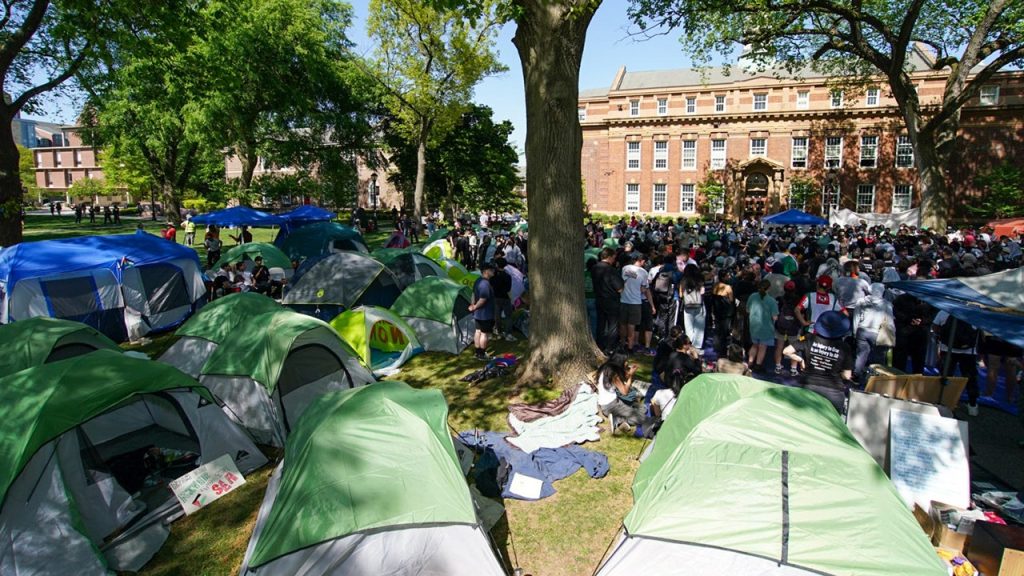Nationwide anti-Israel demonstrations on college campuses have been ongoing for nearly three weeks, prompting some universities to request police assistance while others have made concessions to the protesters. The chaos has led to over 2,400 arrests on dozens of campuses across the country. Tent encampments and building takeovers have disrupted classes at schools like Columbia, USC, and UCLA, with protesters demanding that their universities sever all ties with Israel, including study abroad programs and links to the Israeli military.
Some universities have reached agreements with the protesters in an attempt to quell the unrest. At Rutgers University in New Jersey, protesters packed up their tents after administrators agreed to eight of their 10 demands, including establishing an Arab Cultural Center and not retaliating against students involved in the camp. Brown University in Rhode Island agreed to allow students to present arguments for divesting from companies contributing to the war in Gaza, with a recommendation on divestment to be voted on in October. Northwestern University in Illinois experienced dissent from both pro-Palestinian protesters and supporters of Israel after reaching an agreement to curb protest activity in exchange for reestablishing an advisory committee on university investments.
At Evergreen State College in Washington, administrators struck a deal with anti-Israel demonstrators to publicly call for a cease-fire and consider divesting from companies linked to Israel in exchange for removing their encampment. The University of Minnesota also reached an agreement with protesters to end an encampment on the university’s Northrop Mall, with protest organizers set to address the Board of Regents weekly. Meanwhile, other universities like UC Berkeley, Wesleyan, and George Washington have allowed campus encampments to continue, with a focus on preventing disruptions to university operations and ensuring the safety of the campus community.
Protests have led to resignations from a university committee at Northwestern, with some members citing the presence of antisemitism on campus. The agreements made between universities and protesters have drawn both support and criticism, with some viewing them as concessions and others as necessary steps to maintain order on campus. As the demonstrations continue and negotiations unfold, the future of anti-Israel protests on college campuses remains uncertain, with administrators balancing the need to address students’ concerns while upholding the academic mission and safety of the university community.













